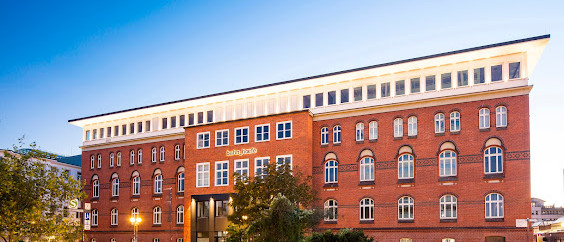

University of Europe for Applied Sciences (Hamburg)
Psychology
Study detals
: Bachelor's degree : BSc in Psychology : Full time : 36 MonthRequirements
Admission Requirements
· HIGH SCHOOL/ BACHELOR DIPLOMA AND TRANSCRIPT
Or equivalent occupational diploma officially translated to English or German
· CURRICULUM VITAE (CV) (Dated & Signed)
· COPY OF PASSPORT (SCANNED)
· MOTIVATION LETTER (MIN 500 WORDS)
· ADMISSION TEST
The test is done online and students are not required to study for this test.
· English language certificate
– IELTS 5.5 overall
– TOEFL iBT60
– TOEFL ITP (paper based) 498
– Pearson Test of English (Academic) 56
– Pearson Test of English (General) Level 1
– Cambridge English Advanced and Proficiency 162 overall
– Cambridge Exam First B2 CEFR = First (FCE), 160
– TOEIC Listening 400, Reading 385, Speaking 160, Writing 150
– PASSWORD 5.5 Overall (no less than 5.0 in each component)
– EF SET (50-minute Test) 51 (only for students applying with a MOI letter)
– Duolingo 100
Speciality
UE Foundation Diploma
The University of Europe for Applied Sciences (UE) offers a foundation diploma in preparation for the Bachelor’s degree programme in Psychology. The programme not only prepares you optimally for this tech-savvy programme at UE, but also fulfils the necessary admission requirements after successful completion. In just one semester, the foundation diploma will improve your English language skills and strengthen your intercultural competencies, in addition to your basic business knowledge. The foundation diploma provides good guidance and an important first insight into UE’s Business and Tech (B.Sc.) degree programmes.
Study psychology without NC
When you study psychology at UE (without NC), the focus of our teaching is always on your individual development in small learning groups and a friendly, informal atmosphere.
Additional information
Psychology, BSc
Globalisation is making our society increasingly mobile, different worlds of thoughts and values are coming together and processes are becoming more complex. Psychologists deal with the experience and behaviour of people in their different circumstances and can use their specialist knowledge to explain and predict complex issues and decisively improve processes with their clients.
In our Bachelor’s degree programme Psychology, you will learn from renowned professors from science and industry, who have expert knowledge in areas such as clinical psychology, occupational psychology or business psychology. In addition, you can actively shape your studies and your career path through individually selectable specialisations and an interdisciplinary choice of subjects.
Career Perspectives
The University of Europe for Applied Sciences can already look back on over 10 years of experience in the field of business psychology and is considered a pioneer in the private university sector. This experience is also incorporated into our Bachelor’s degree programme in Psychology B.Sc. which is offered without NC (Numerus Clausus).
As a UE student, you’ll have access to our Career Development Centre which will support and guide you through any career-related enquiry you may have.
What happens after your studies?
If you would like to find out more about your career options after studying psychology without an NC, take a look at the video by the Professional Association of German Psychologists (BDP).